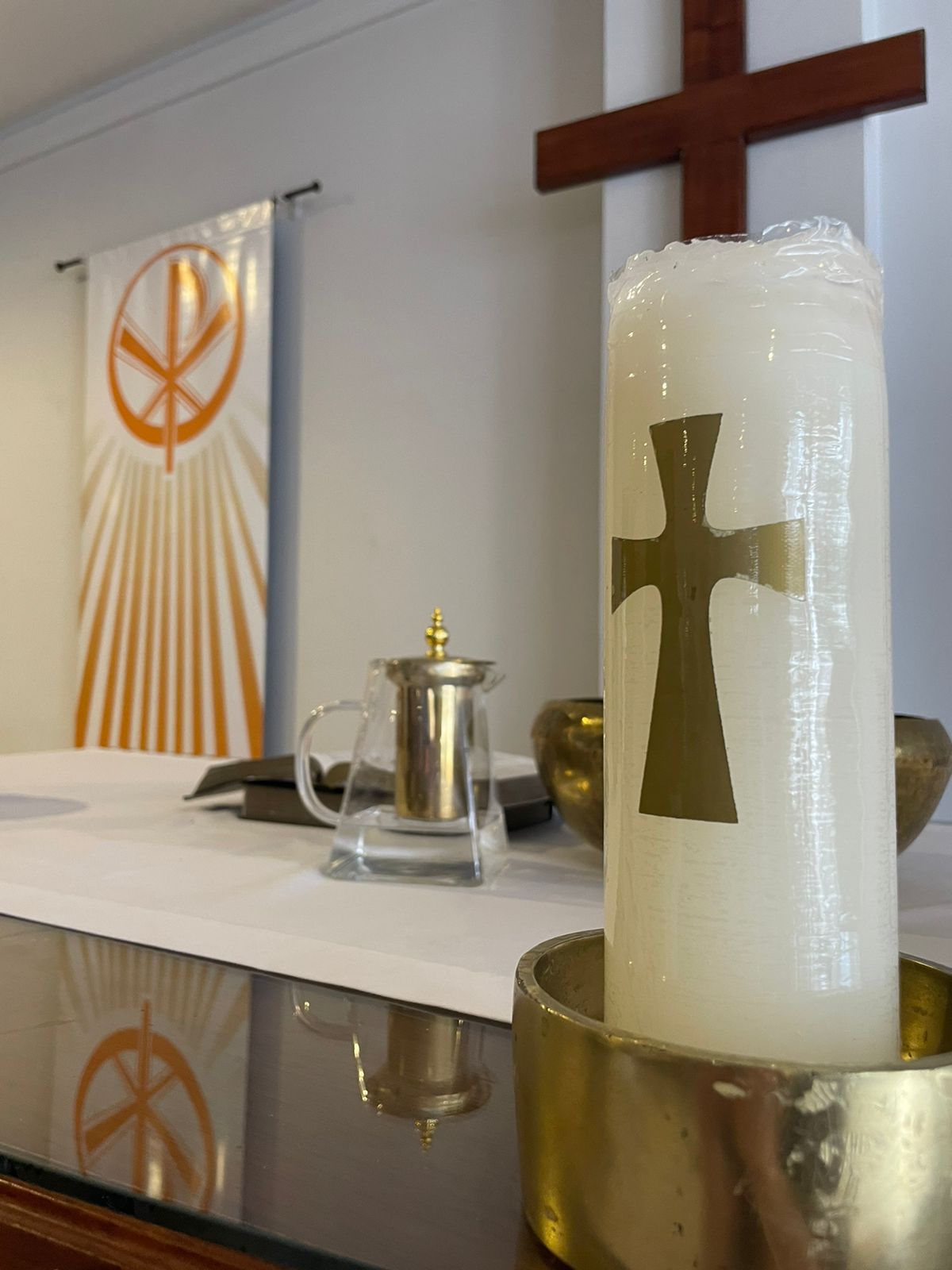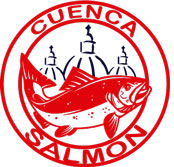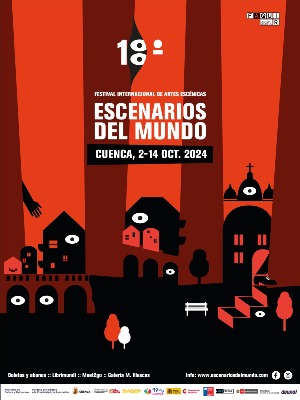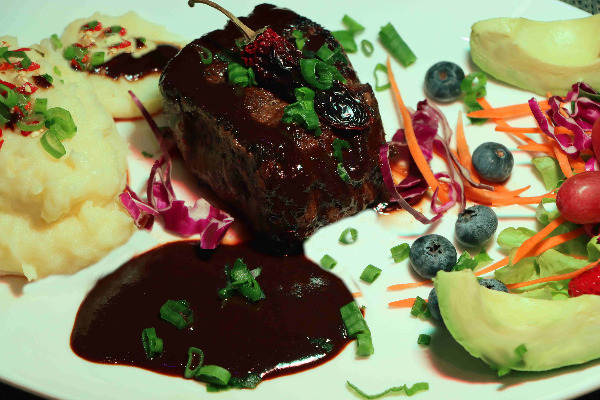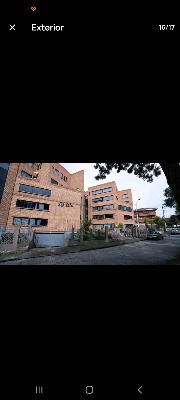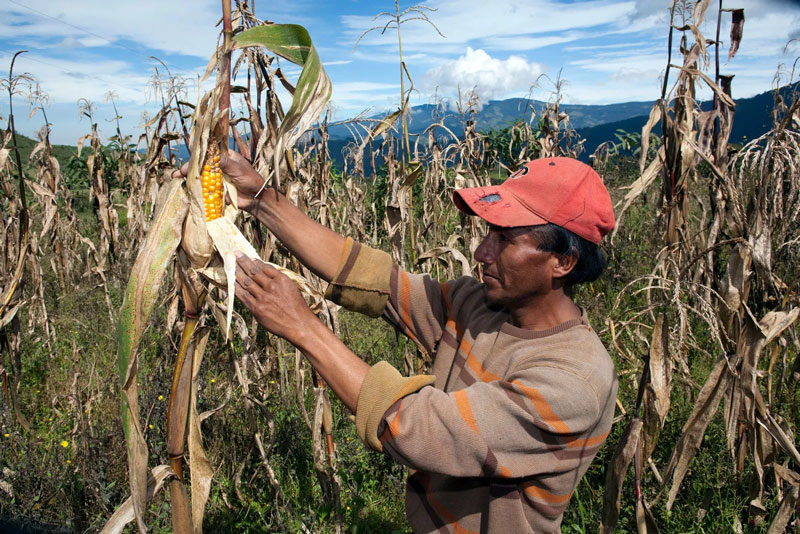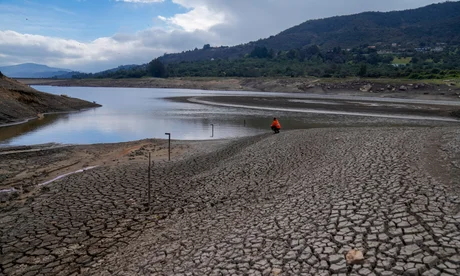An Englishman in Imbabura Province leads fight against mining and to protect traditional values
By Stephen Vargah
Many foreigners move to Ecuador to retire.
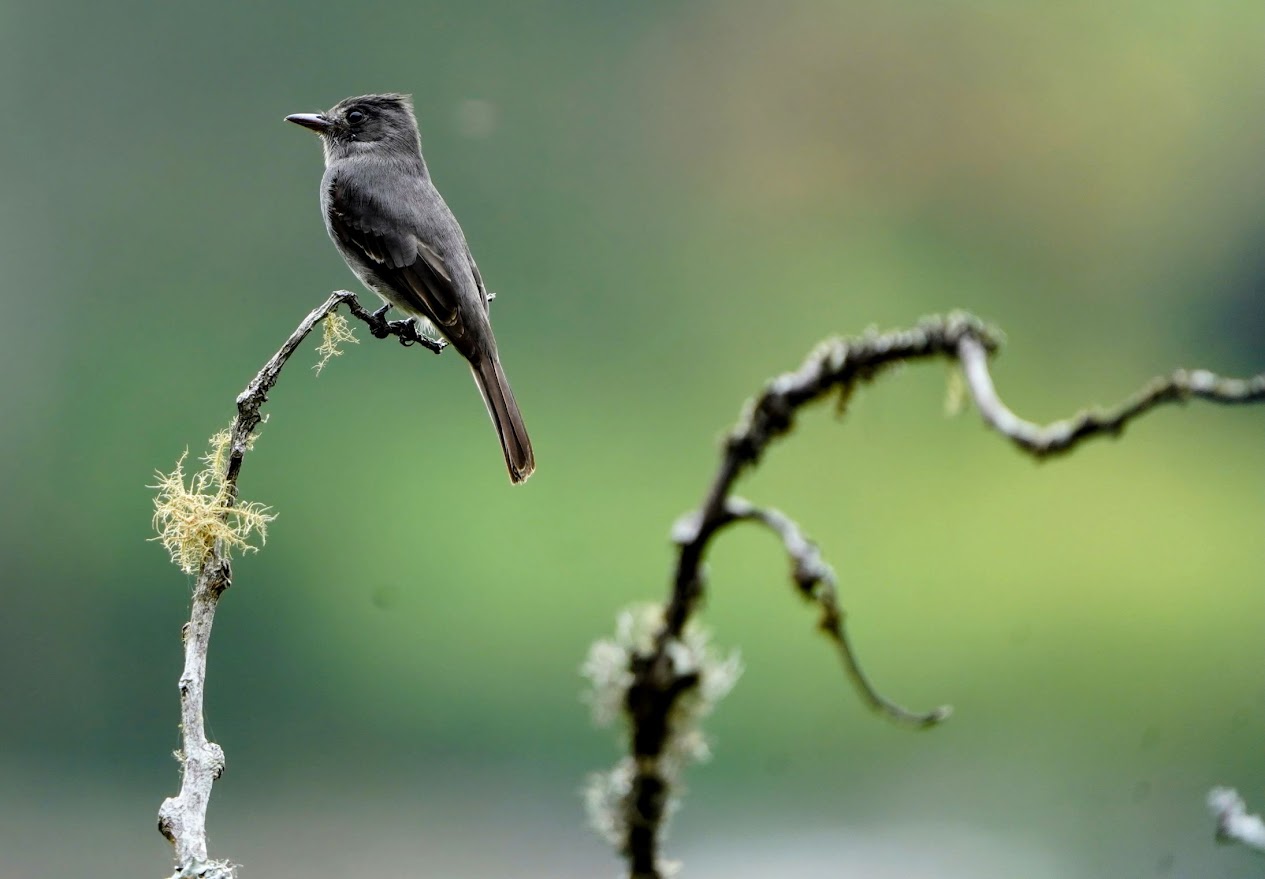
Ned Creswell wants to publicize the natural wonders of Cuellaje parish, including this Smoke-Colored Pewee.
“I moved because I was dissatisfied with my life in London,” said Ned Cresswell.
A good number of foreigners end up residing in Cuenca. Others move to the coast of Ecuador while some set foot in smaller cities like Cotacachi.
“I flew to Mexico City and spent two years travelling and working as a volunteer on farms from Colombia down south to Argentina. I settled in Ecuador in May 2007,” said Cresswell.
He made the tiny Imbabura province town of Seis de Julio de Cuellaje his home.
While a good number of foreigners residing in Ecuador have unscheduled days with no commitments, some volunteer and give of their time.
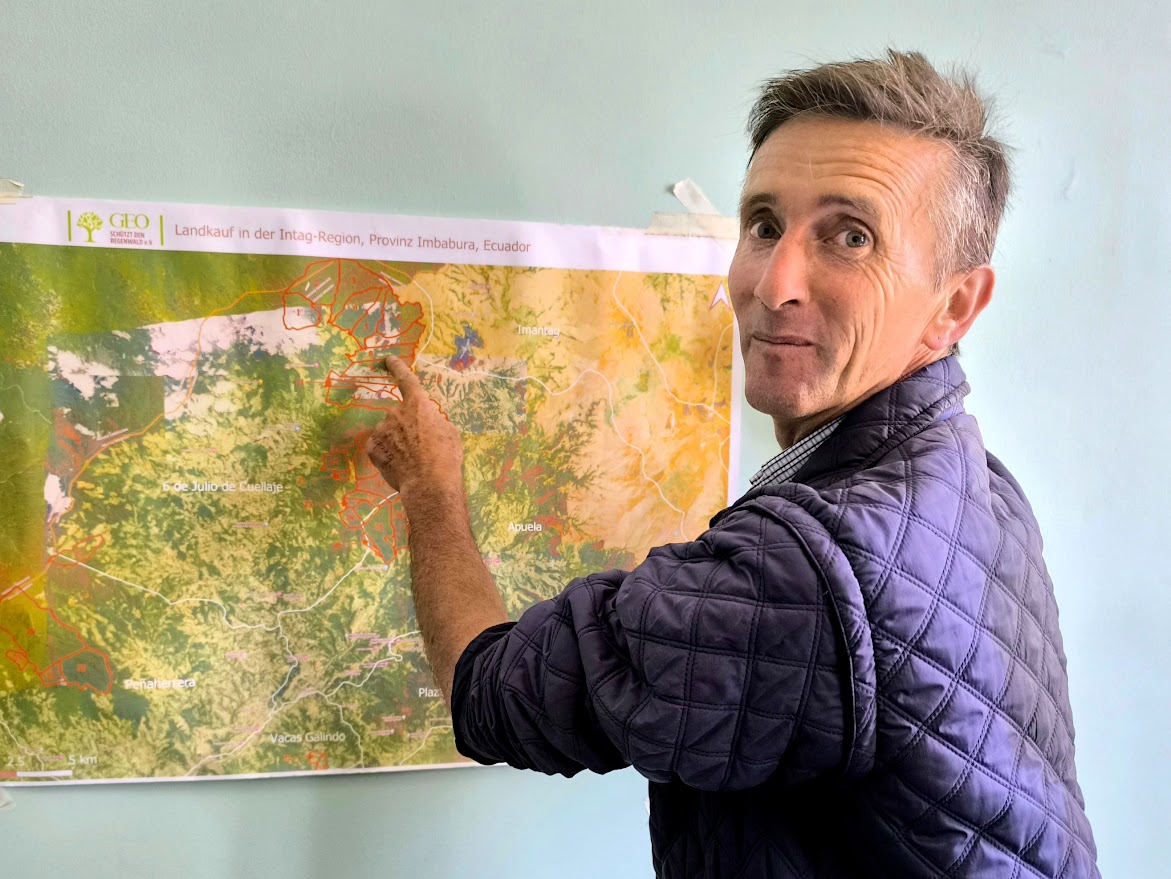
Ned Creswell points out the land purchases in the Intag region, including the Llurimagua concession, owned by the Chilean mining company Codelco.
“I’m president of the parish council of Cuellaje parish in northwest Ecuador, part of canton Cotacachi in Imbabura province,” said Cresswell. “(A) thing that we are trying to do as a parish council, is not to ‘jump into bed’ with the foreign mining companies and central government ministries, that would like us to endorse the mega metal mining projects that are proposed for this part of Ecuador.”
The 57-year-old Englishman never set out to be active in governmental affairs in Ecuador. But his background may have lent a clue.
Cresswell graduated from Newcastle Upon Tyne University in 1989 with a BSc in plant biology. A BSc in the UK is the same as a Bachelor of Science in the United States.
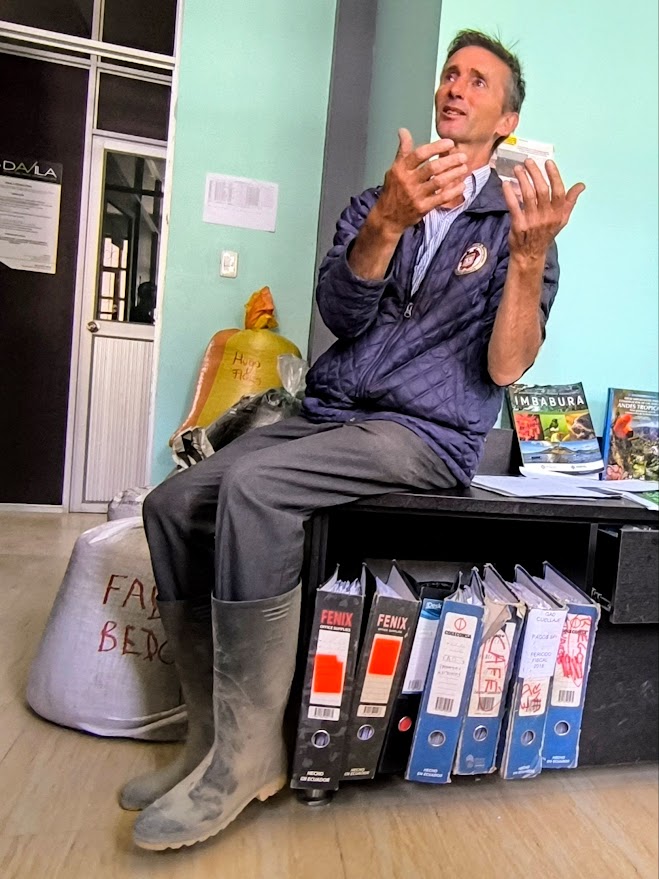
In his office, Ned Creswell explains his passion for saving the land for future generations.
He last worked for the South London Council “Noise Team,” in the borough of Southwark. It involved environmental health and noise nuisance, which includes unreasonable noise from pubs, clubs, bars and live events as well as noise from building sites or building works outside of permitted hours.
“Unless I am much mistaken, it’s unusual for a foreigner to be elected as president of a parish council in Ecuador,” said Cresswell.
“(It) is an elected position: the local decentralized governments, (provincial, municipal, and parroquial), are elected every four years in Ecuador,” said Cresswell. “There are 1,800 folks in this parish, and an annual budget of $169,000 — so it’s ‘small beer’”.
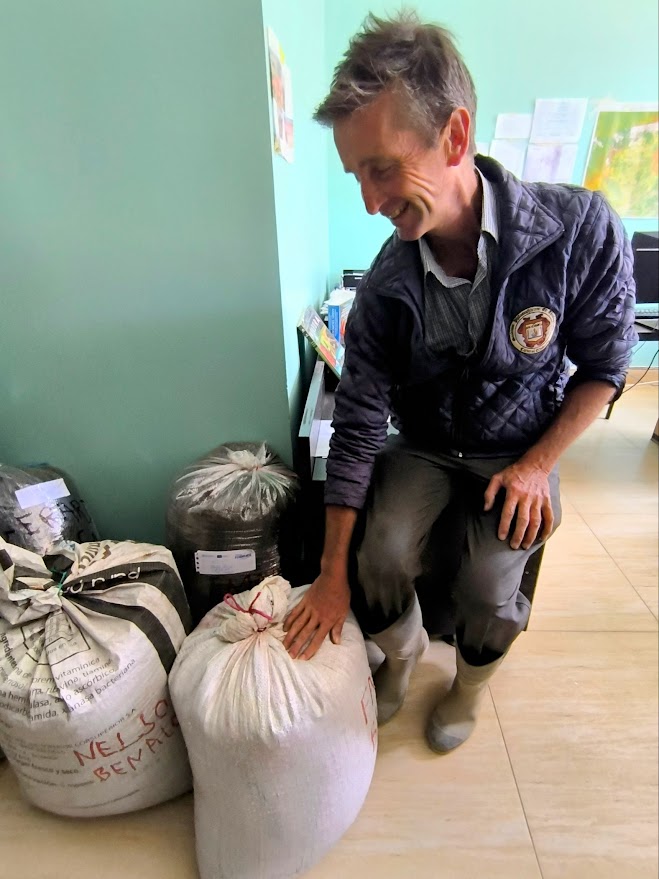
One of Ned Creswell’s goals is to help the agricultural community through a special program to help sow the land with very affordable seed and beans.
The Englishman says it’s not a very romantic job as it involves mostly keeping the parish road repair machinery working for about 100 miles of “third-rate dirt roads,” supporting vulnerable folks such as the elderly and disabled, maintaining the public buildings and open spaces, and taking care of the parish nature reserves.
With his experience with the government in the UK, Cresswell is trying to motivate the 14 parish council staff to serve the public, rather than to be served by the public.
Serving the public means introducing in June 2023 a local regulation obliging the elected councilors to work a 40-hour week.
“Which was somewhat unusual, and I think is quite important, because it basically means that when a farmer, housewife, or shopkeeper is struggling to survive in this parish,” said Cresswell. “He hopefully knows that we public servants are there struggling with them, and not just freeloading.”
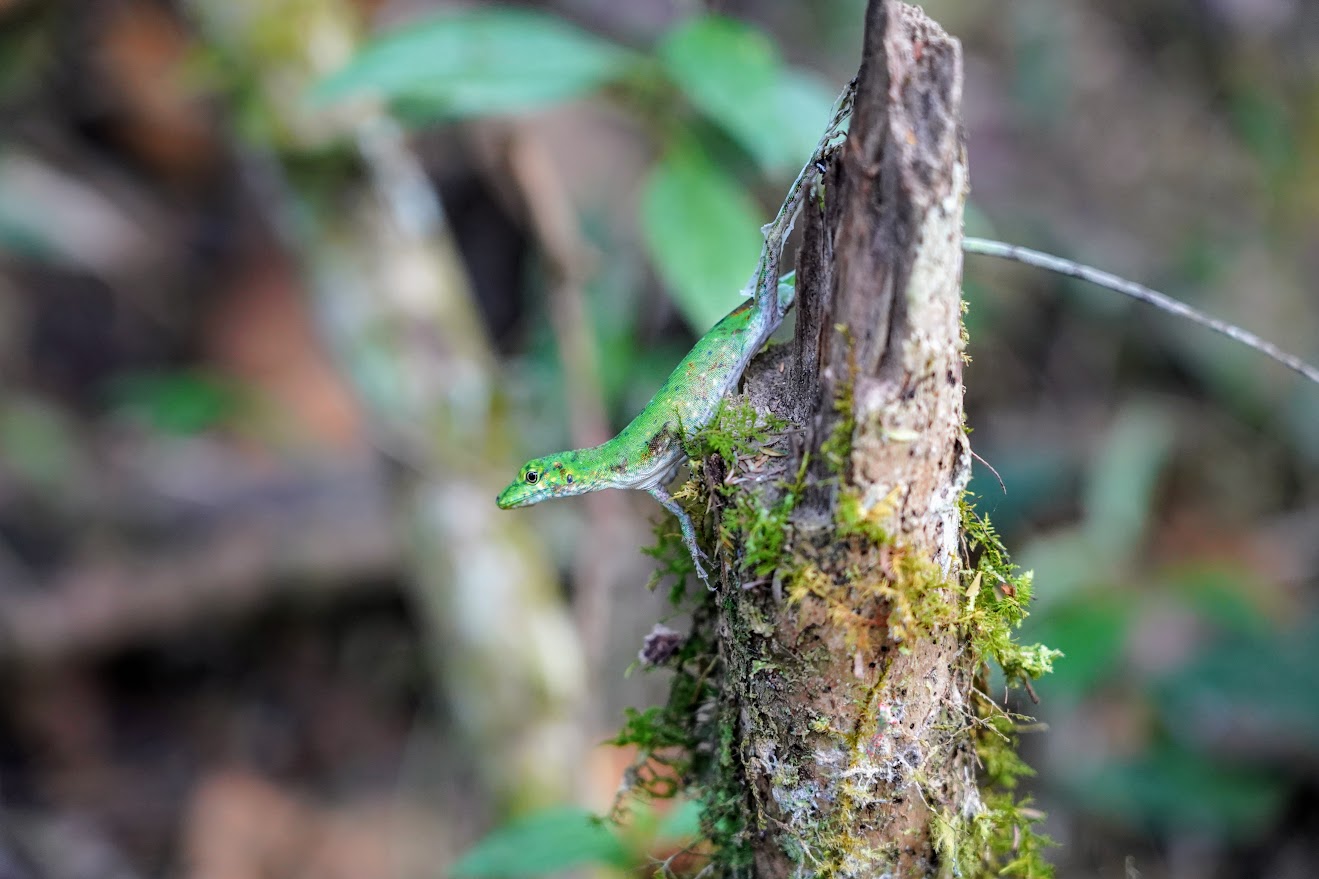
A female Gem Anole in the mountains of Imbabura province is just one reason Ned Cresswell fights the mining companies.
In February 2024, a local regulation limiting the hours for sale of alcohol to 10 p.m. or to midnight in the local bars was put on the books.
“I think that this issue of security and reinforcement of healthy, traditional values, is just now of great importance in this parish,” said Cresswell. “And I guess anywhere on the planet, as we appear to lack sane leadership at a global level.”
Those values Cresswell thinks should be applied everywhere.
“Our common task is trying to attain some minimal level of order and sense in our communities and resisting the universal tendency towards chaos and injustice.”
That includes mining in Ecuador. It has led to a number of injustices, including environmental pollution and lack of government regulation. Critics say that the government has not provided sufficient regulation for mining in the country.
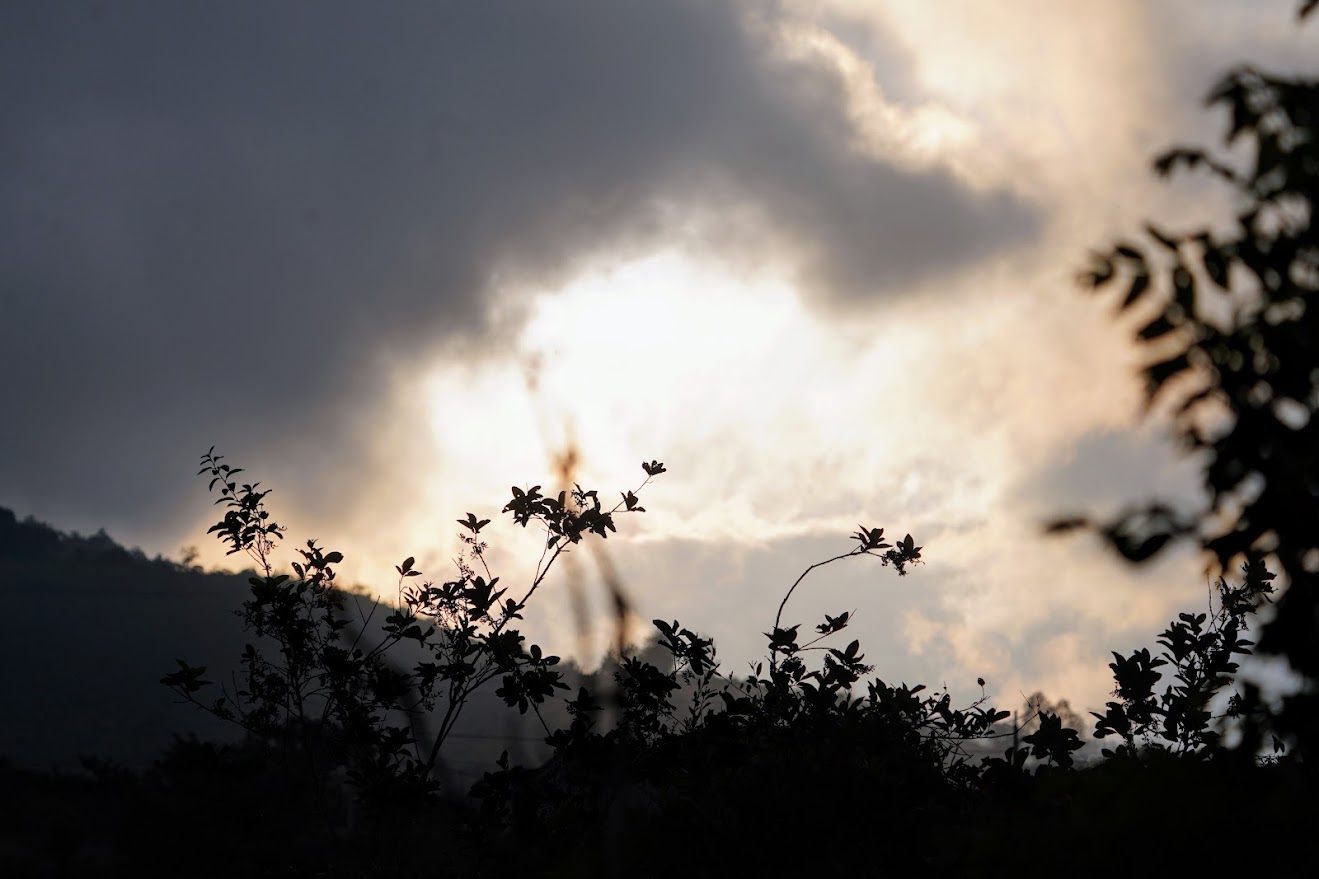
The mountains in Imbabura province are rich in metals that mining companies want.
Under Cresswell’s leadership, the Cuellaje parish is trying to be a leader by not “jumping into bed” with the foreign mining companies and central government ministries that would like them to endorse the metals mining projects that are proposed for their part of Ecuador.
“We think that the future for this parish lies in conserving our cloud forests, rivers, and agricultural way of life for generations ahead, and flatly refusing to do business with the mining companies,” said Cresswell. “I think that if you flirt with these companies, as many parish councils do, you are, for the sake of short-term affluence, putting many good, honest working people at risk of ill health, ruined environment, and miserable social dysfunction, in perpetuity.”
In its beginnings, mining did not have regulations or a legal foundation in Ecuador. The first Mining Law dates back to 1830, and it has been modified until the most recent update in 2009.
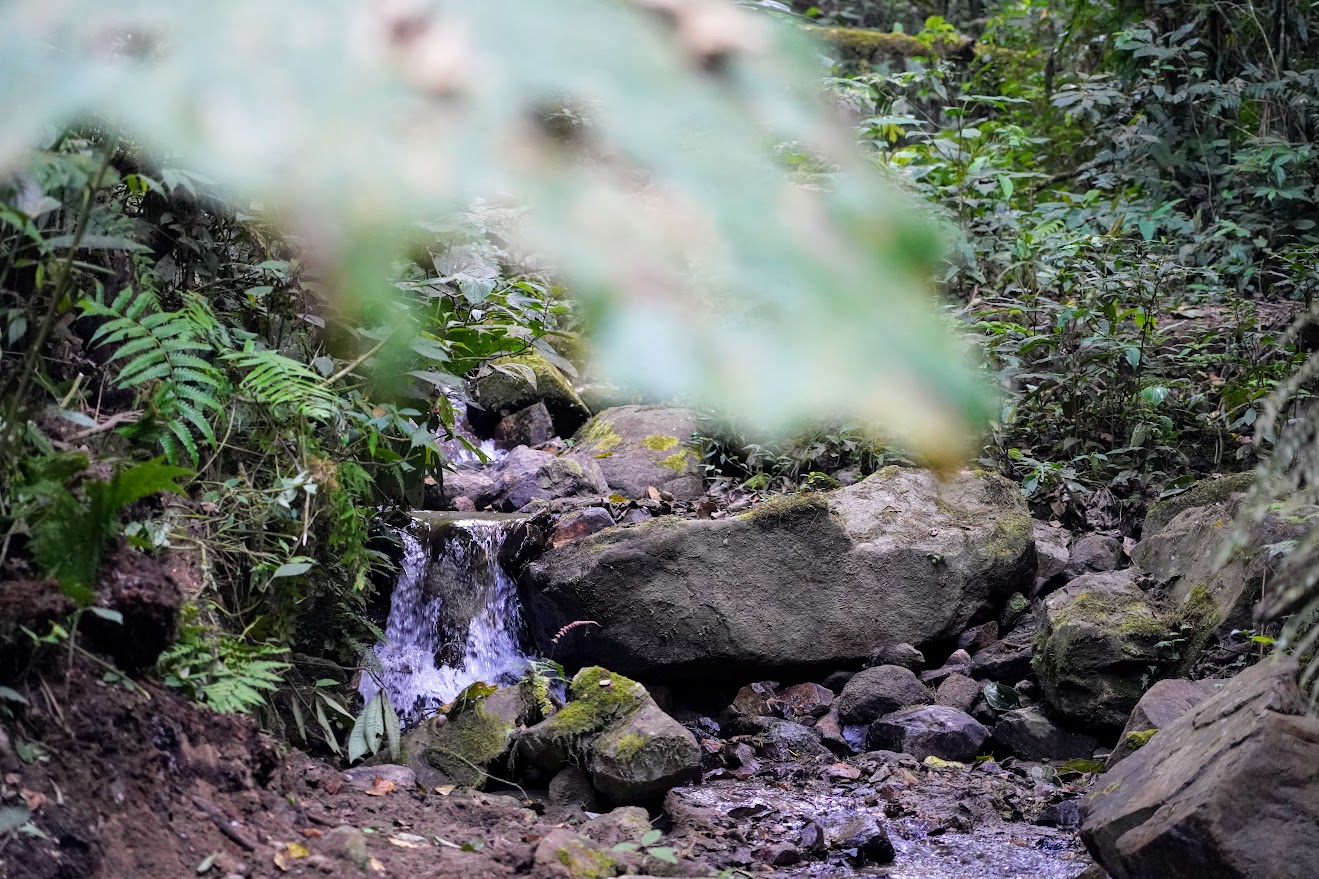
Water is a precious resource in Imbabura province, and Ned Cresswell wants to save it from the mining companies.
A U.S. National Institutes of Health (NIH) study released in 2022 said the provinces of Azuay, Imbabura, Loja, and Pichincha are the most conflictive areas in Ecuador due to the impacts caused by mining activities.
Australian company Antilles Gold Limited, formerly PanTerra Gold Ltd., owns one of the largest gold mines in Ecuador and in the world. Located in Azuay province, the mine has estimated reserves of 1.28 million ounces of gold.
Currently, the price of gold is around $2,640 per ounce. That means the Azuay province gold mine has an approximate value of about $3.38 billion.
Mining worldwide for minerals and precious metals is experiencing a production growth that has never been seen before.
“Gold (Au), recognized as one of the most sought-after and demanded elements in international trade, is also the most exploited precious metal in world mining production,” said the NIH study.
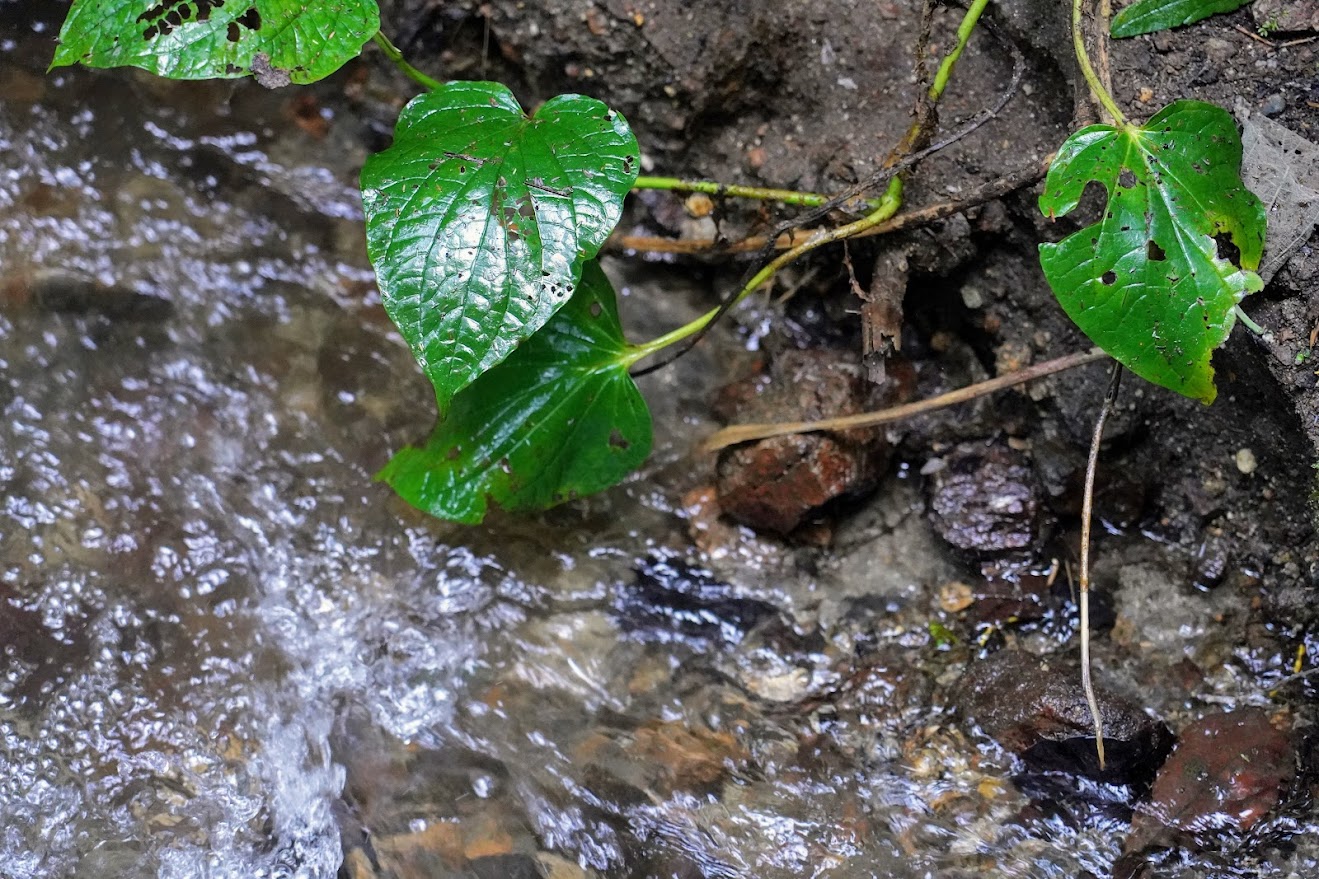
Studies have shown that pure mountain water has been contaminated from massive mining operations throughout the world, including Ecuador.
It added that countries such as Argentina, Bolivia, Brazil, Colombia, and Peru have substantial gold production. Ecuador has become increasingly competitive in the last decade as part of the country’s strategy to diversify its productive output.
Compared to the rest of South America, Ecuador is new to large scale mining. The country began operations on a large-scale during Rafael Correa’s government. It was part of the neo-extractivist policies.
About 85 percent of the 1,500 square kilometers / 850 square miles that make up the Intag zone (Imbabura province) are concessioned to mining companies for copper and gold.
The Llurimagua concession, according to a 2018 study by the Chilean company Codelco, contains about 20 million tons of copper, and is at the stage of advanced exploration. The price of copper is about $4.45 per pound. Its 52-week range is $3.55 to just over five dollars.
The goal of the Ecuadorian government directly links future mining exploitation with reducing poverty. It wants “responsible mining” to generate revenue for social programs.
That commitment to large-scale mining is strongly questioned by many, who propose seeking alternatives to extractivism that are not based on the aggressive exploitation of the land.
“There is plenty of evidence to back up what I have said: Grasmere mine in Indonesia, Sonora in Mexico, and Antamina in Peru are just a few examples where non-governmental organizations and residents have managed to obtain hard data showing what happens to people when their water, air, and soil is contaminated with heavy metals,” said Cresswell.
Mining is not new to Imbabura province, but it has been on a small-scale.
“The mining conflict has been going on low key in Intag since 1995 and will likely continue for another 30 years and beyond,” said Cresswell. “I personally don’t believe much in aggressive, short-term actions, which certainly gain attention, but tend to quickly exhaust residents’ enthusiasm and resources, and are possibly counter-productive in the long run.”
It is an uphill battle as global mining companies like China Shenhua Energy have over $100 billion in market cap. And lots of experience.
“What rewards do mining companies offer to tempt local people? Christmas ‘goody bags’, help with the costs of parish fiestas, help with road and bridge building, help with maintenance and improvements to schools and health facilities, and short-term unskilled work in the mining projects,” said Cresswell. “If people lose sight of the blessings of clean water and air, fertile soil giving healthy food, and a peaceful healthy community in which they and their children can carry out a normal, human existence, then they are easy prey for the tempting offers of the mining companies.”
Cresswell’s approach to the mining companies is rather proactive. He feels local governments have to play their part in keeping the ancient, simple truths foremost in the minds of local people.
“I believe in strengthening the existing local economy (which is agriculturally based, with complementary activities such as tourism), strengthening traditional values and principles,” said Cresswell. “I also believe that it’s important for the parish council to maintain a firm position of opposition to the projects, whenever we are approached by the mining companies and their central government allies to try hard not to give a mixed message which could encourage investment in mining exploration.”
Last year, travel and tourism directly contributed approximately $9.9 trillion to the world’s gross domestic product (GDP). That was nine percent of the world’s total global GDP. It is why Cresswell is seriously looking to promote tourism to his rural part of Imbabura province.
“Tourism as an alternative. Yes, I think that tourism could complement the agricultural-based economy of the Intag zone. It’s an example of a family-based enterprise that springs up together with other ideas, as a natural part of the desire to prosper, and to trade and communicate with our fellow human beings,” said Cresswell.
He points out the area’s cloud forests, remarkable birdlife, waterfalls, high-altitude lakes, hiking trails, and the family-based small-scale coffee and avocado farms, that many visitors find charming and inspirational.
“It’s not for everyone, but people who are looking to get off the beaten track and experience authentic rural life in a cloud forest setting, won’t be disappointed,” said Cresswell.
_________________
Photos by Stephen Vargha
Stephen Vargha’s second edition of his book about Cuenca, “Una Nueva Vida – A New Life” is available at Amazon in digital and hardback formats. His award-winning blog, “Becoming Cuenca,” supplements his book with the latest information and hundreds of professional photos by him.






